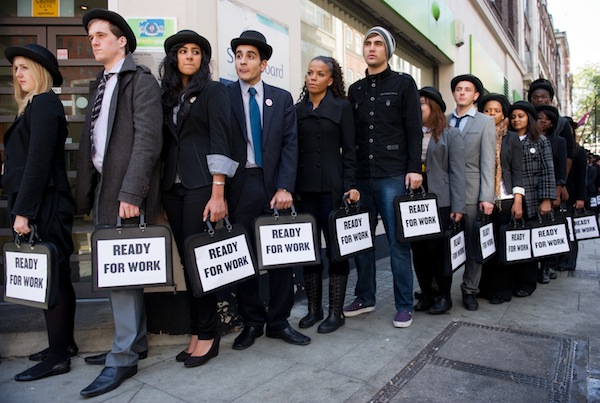Buoyed by his department’s recent success in squashing allegations of ‘slave labour’, Chris Grayling launched a new back-to-work scheme for unemployed young people in London today. The joint pilot with the Mayor of London will put 6,000 18-24 year-olds with little or no work experience into placements with charities, voluntary organisations and social enterprises in the community which last three months. If they refuse to take part, then they will not receive their benefits.
Grayling is well aware that this sort of scheme will be controversial, because it could mean young people lose their benefits if they refuse to comply. In an article in the Evening Standard, the employment minister wrote:
‘The usual suspects will cry “slave labour”. They always do. But they are the people who believe that young claimants have the right to sit at home playing computer games. I simply disagree.’
One of the major criticisms of work experience programmes like this is that they prevent the creation of paid work as companies take advantage of the state-sponsored labour on offer and avoid paying out salaries. The department says this scheme is sensible because it focuses on volunteer work in the community, rather than a claimant occupying the office chair of someone who should be paid for their work. Of course, this means young people desperate to get their foot in the door at a newspaper, for example, can’t use this scheme to apply for those unpaid internships that are often the best route into a paid job in the media and other industries. I checked this with the DWP, who pointed out that someone on Jobseeker’s Allowance should still be able to claim the benefit for a work experience placement in industry for up to eight weeks, but that their view is that anything longer is probably work that should be carried out by a paid member of staff. The scheme also promises to teach young people to craft an attractive CV, and to perform well in an interview. If that targeted support is truly useful, unlike some of the practices uncovered in a recent Dispatches exposé of Jobcentre Plus, then this will mean that when an opportunity does arise, an applicant can walk into an interview not just with experience and skills to talk about, but also with a CV and a confident manner to showcase those assets. As Grayling argues, this is immeasurably better than someone sitting at home playing computer games.






Comments